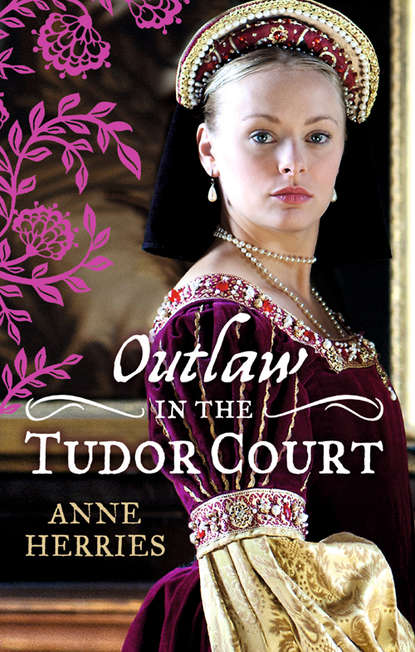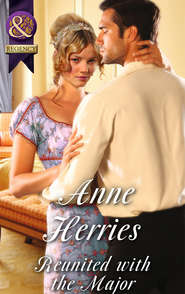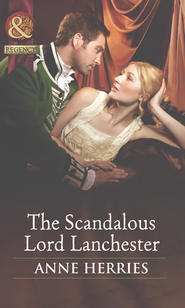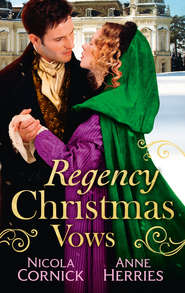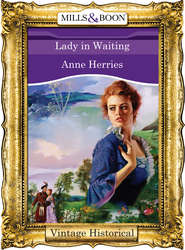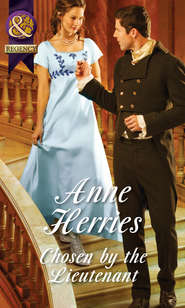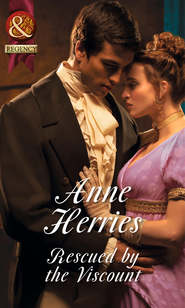По всем вопросам обращайтесь на: info@litportal.ru
(©) 2003-2024.
✖
OUTLAW in the Tudor Court: Ransom Bride / The Pirate's Willing Captive
Настройки чтения
Размер шрифта
Высота строк
Поля
‘What do you think of Venice, my dear?’ Lady Mary asked as she came to stand beside the girl. ‘Is it what you expected?’
‘It is beautiful. I did not know what to expect. I have seen a pastel of the Grand Canal and its palaces, ma’am, but reality far exceeds the artist’s imagination. Those palaces seem almost to be floating.’
Lady Mary laughed. She was a stout, good-tempered lady, who had been pretty in her youth, and her smile was warm with affection, for she had grown fond of Kathryn on their journey. They had been together some months and it was now the spring of 1570. In England it would still be very cool, but here it was much warmer as the sun turned the water to a sparkling blue.
‘Yes, it has a magical appeal, does it not? My late husband was an enthusiastic traveller in his youth. He told me of his visit to Venice. We must visit St Mark’s Square and gaze upon the Doge’s palace while your uncle is at his business, Kathryn.’
It had been decided that she should look upon her kind friends as Aunt Mary and Uncle Charles.
‘We may not be blood related,’ Charles Mountfitchet had told her at the beginning of their journey, as they set out to London to meet his sister. ‘But we shall be together en famille for some months and must be comfortable with one another.’
Kathryn had been very willing to accept him as an honorary uncle, for she had long felt close to him. They had comforted each other throughout the years since Dickon’s abduction and she was fonder of him than anyone other than her father.
‘Oh, I want to see everything,’ she said now. Her eyes had a glow of excitement that had been missing for a long time. The journey had suited her for she had not been seasick, as Lady Mary had for the first few days of their voyage. ‘And you will feel so much better to be on land again, Aunt.’
‘Indeed, I shall. I might wish to go no further,’ Lady Mary said with some feeling. ‘I fear that this is but a temporary respite, for my brother wishes to settle in Cyprus and so we must put to sea once more.’
‘He plans to grow his own wine,’ Kathryn said. ‘But who knows? His plans may change.’
‘You are thinking of Richard, of course.’ Lady Mary frowned. ‘I know that both you and my brother hope for a miracle, my dear, but I fear you will be sadly disappointed.’
‘But it does happen,’ Kathryn said. ‘Suleiman Bakhar told my uncle that sometimes slaves may be either rescued or bought from their masters. If Dickon was sold as a house slave, it is possible that we might be able to find him and purchase his bond.’
‘My brother has tried to find his son,’ Lady Mary said, sighing deeply. She did not believe their search would come to anything and feared that they merely brought more pain on themselves. ‘For years he petitioned men of influence to help him in his search, to no avail. I believe that Richard is dead. I am sorry, but I think that some trace of him would have come to light before this if he were alive.’
‘I know what you say is sensible,’ Kathryn said, her eyes bright with the fervour of her belief. ‘But I feel that he lives. Here inside me.’ She pressed her hands to her breast. ‘I cannot explain it, for it must sound foolish, but if Dickon had died—a part of me would have died too.’
Lady Mary shook her head, but said no more on the subject. In her own opinion Kathryn was living on false hope. Even if her nephew had somehow survived, he would not be the same. Any man who had endured years of slavery must have changed; he might be hard and bitter or broken in spirit. Either way, Kathryn was doomed to grief. It might be better if no trace of Richard was ever found, for surely in time she would learn to love someone else.
The girl had blossomed under her care. While in London they had visited the silk merchants, buying materials to make into gowns suitable for a warmer climate. Lady Mary had been pleased to take the girl about, introducing her to her friends, giving her a taste of what life could be, and the change in Kathryn had pleased her. She smiled more and her laughter was warm, infectious, though there was a stubborn streak beneath her pretty manners. Yet she had thrown off the air of sadness that had haunted her lovely face and was revealed as a charming, intelligent girl.
Lady Mary had great hopes of finding a suitable husband for her charge before the time came for Kathryn to return home.
‘I believe this is the gondola come to take us ashore,’ Kathryn said as she turned to her companion. ‘We are to be taken to the house Uncle Charles has hired for our use, but he is to meet that friend of his immediately. Signor Santorini, I believe he called him.’
‘He hopes for news, I dare say.’ Lady Mary smothered a sigh. ‘Well, at least it will give us time to settle in. Men are always in the way at such times.’
Kathryn smiled, but made no answer. Given a free choice she would have wished to go with her uncle to the meeting, but she had not been asked. She would be of much more help to Lady Mary—but she would be impatient for news.
‘I trust your journey was a good one, sir?’ Lorenzo rose to meet his visitor. He had chosen to receive him in one of the smaller salons to the right of the grand entrance hall, for it was more welcoming and more conducive to privacy. ‘I am pleased to meet you at last, Lord Mountfitchet.’
His words were spoken frankly, his eyes going over the older man and finding that he was drawn to him in a way that was not often the case with strangers. He saw suffering in the other’s face, the greying at his temples and in his beard; it was a face grown old before its time. It was the face of a man who had known terrible grief. For some reason Lorenzo was saddened by his grief, though the man was a stranger to him.
‘Come, sir, will you not take a glass of wine with me? Pray be seated.’ He indicated the principal chair, which was of a kind not common in England, the seat well padded, and the low back comfortable and shaped to accommodate a man’s bulk. ‘I dare say you are weary from your journey?’
‘Indeed, a glass of wine would be welcome, Signor Santorini,’ Charles Mountfitchet said as he took his seat. ‘My sister and niece wanted me to accompany them to our lodgings and rest for a day or so, but I was impatient to meet you.’
‘Unfortunately, I have no definite news of your son,’ Lorenzo said. ‘However, there is a man I would have you meet, sir. He was rescued from a Corsair galley two months ago, but has been too ill to question. We believe that he may be English, though as yet he has hardly spoken a word.’
‘What does he look like?’ Charles asked barely able to contain his excitement. ‘What colour are his hair and eyes?’
‘What colour hair did your son have? Were there any distinguishing features?’
Charles thought for a moment. ‘It distresses me to say it, but I can no longer see Richard’s face. His hair was fair—darker than yours, but of a similar texture. His eyes were blue…’ He frowned. ‘I might be describing a thousand men. I fear I have given you but poor help, sir. But loath as I am to admit it, I spent little time with my son when he was young. He was there and I took my good fortune for granted. It was only when I lost him that I understood what he had meant to me.’ His voice broke with emotion.
‘Yes, it is often so, I believe,’ Lorenzo said. He was not certain why he felt affected by Lord Mountfitchet’s story, for he was not a sentimental man. ‘We all take what we have for granted. My father died some months ago and I miss him sorely. I was away much of the time and afterwards regretted that I did not show more gratitude towards him.’
‘I was sorry to learn of Antonio’s death. We met only twice when he visited England, but we were drawn to each other.’ Charles hesitated, then said, ‘I did not realise at the time that he had a son.’
‘I was adopted some years ago,’ Lorenzo said, revealing more than was his wont. ‘My father was a good and generous man. I owe him much. He was not a wealthy man, so it was given to me to improve our fortunes and I was happy that I was able to see him end his days in comfort.’
‘He was fortunate to have you. I have tried to preserve my estate for Richard, but it would have been a relief to me to have him with me. I fear I grow old and the days seem lonely.’ His eyes were clouded with grief, the years of futile searching carved deep into his face.
‘The man I would have you meet has blue eyes,’ Lorenzo said with a frown. ‘As for his hair—it has turned grey from the suffering he endured at the hands of his captors. I must warn you that this man has terrible scars on his arms, back and legs.’
‘The poor devil,’ Charles said and his hands shook as he sipped his wine. He took a deep breath, trying to control the images in his mind—images that had haunted his dreams for years of his son being beaten and tortured. ‘This wine is excellent.’ He made an effort to banish his nightmares. ‘A new one, I think? You have not sent me this before?’
‘It came from a vineyard in Cyprus,’ Lorenzo told him. ‘I have been trying it before adding it to the shipment.’ He refilled his guest’s cup. ‘I shall speak to the man I mentioned myself, ask him if he will see you.’ He saw the surprise in the other’s eyes. ‘He is not my prisoner. He was saved from the wreck of a galley and we have nursed him through his illness. Now that he is well, he will be given a choice. He may work for me as a free man or return to his homeland. If he asks me for help to find his family, I shall give it.’
‘Do you ask a ransom for him?’
‘If his family can afford to pay. I am a man of business, sir.’
‘And if he has no family?’
‘Then he is free to go where he will—or stay with me.’ Lorenzo’s eyes held a glint of ice. He lifted his head defiantly. ‘He has his life returned to him. What more would you have of me?’
‘Nothing you have not given,’ Charles replied. ‘For myself, I would be glad to pay for the return of my son.’
‘I wish that I might give you more hope,’ Lorenzo said. ‘But let us speak of other things. You have an idea of settling on Cyprus, I believe?’
‘I have thoughts of my own vineyard.’
‘Then I may be of more help to you there,’ Lorenzo said. ‘Come to dinner tomorrow evening. Bring your sister and niece to dine. I may have more news for you by then.’
‘Thank you. I shall look forward to it.’
Charles was thoughtful as he took his leave. He believed Lorenzo Santorini an honest man. His manner was somewhat reserved and at times his eyes were cold. He was clearly unsentimental about his business, a man of purpose. Some might think him harsh to take ransom money for men he rescued from slavery, but Charles found no fault in his seeking some profit from what he did. There were others who would simply have left the galley slave to die or even have sent him back to the markets to be sold again.
No doubt it was Santorini’s keen intelligence and lack of sentiment that had made him wealthy. Yes, perhaps he was a little harsh in matters of business, but who knew what had caused him to be that way? He sensed some mystery in the man’s past, but it was not his affair. Santorini would deal fairly with him and he could ask for no more.
His thoughts turned to the man he had been told of—a man who might be English with blue eyes. Could he possibly be Richard? Charles felt a flicker of hope. Yet it was ridiculous to allow himself to hope. There must be many blue-eyed Englishmen who had been lost at sea and taken as galley slaves, and not only by the Corsairs. Some served in Spanish galleys and there was little to choose between their masters, for they were beaten and tortured, made to work until they collapsed at the oar and were tossed into the sea to die. The Spanish hated the heretic English and it was often said that they were crueller than the Corsairs to those they took in battle.
Charles closed his eyes, trying to shut out the pictures that crowded into his mind. God forgive him, he could almost wish his son dead rather than know that he had suffered such a terrible fate.
‘But that is wicked!’ Kathryn exclaimed as Charles spoke of the ransom he would pay if the man he had been told of should by some extreme chance be his son. ‘Why, this Lorenzo Santorini is little better than those evil men whose business is to trade in slaves.’
‘No, Kathryn,’ he said. ‘You do not understand, my dear. I would be willing to pay any sum for Richard’s return and should be grateful to the man who found him for me.’





